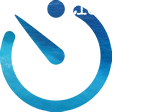DJ Totleben
TODESSA SEASON 01, EPISODE 09
Livestream from Todessa
Camera: Tman
Cast: Totleb & Co.
Editor: Todito
Soundmix: Todonsky Junior
Directed by: T.L.
Hints & Definitions
John F. Kennedy, 1962
Well, space is there, and we’re going to climb it, and the moon and the planets are there, and new hopes for knowledge and peace are there. And, therefore, as we set sail we ask God’s blessing on the most hazardous and dangerous and greatest adventure on which man has ever embarked. Thank you.
Jonathan King, 1965
Streets full of people / All alone / Roads full of houses / Never home / Church full of singing / Out of tune / Everyone’s gone to the moon / Eyes full of sorrow, never wet / Hands full of money, all in debt / Sun coming out in the middle of June / Everyone’s gone to the moon / Long time ago / Life has begun / Everyone went to the sun / Parks full of motors, painted green / Mouths full of chocolate-covered cream / Arms that can only lift a spoon / Everyone’s gone to the moon…
Nina Simone, 1969
What will happen now? / Everyone’s gone to the moon / There’s nobody left / Everyone’s gone to the moon…
Los Angeles Times, 2006
The survival of the human race depends on its ability to find homes elsewhere in the universe because there’s an increasing risk that a disaster will destroy Earth, world-renowned physicist Stephen Hawking said.Humans could have a permanent base on the moon in 20 years and a colony on Mars in the next 40 years, the British scientist told a news conference. “We won’t find anywhere as nice as Earth unless we go to another star system,” said Hawking, who received a rock star’s welcome in Hong Kong.
LADEE, 2013
LADEE, the Lunar Atmosphere and Dust Environment Explorer robotic probe launched Friday night atop an Orbital Sciences Corporation Minotaur V rocket. The first deep space mission from Wallops Flight Facility, LADEE will orbit the moon to collect information about its atmosphere and environmental influences on lunar dust. Data from LADEE will help scientists better understand other planetary bodies in our solar system.
